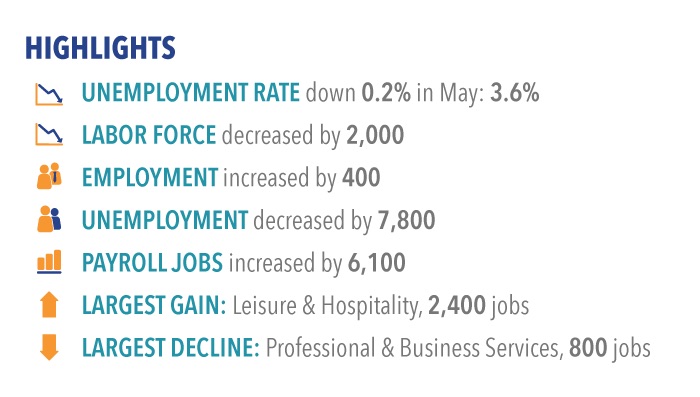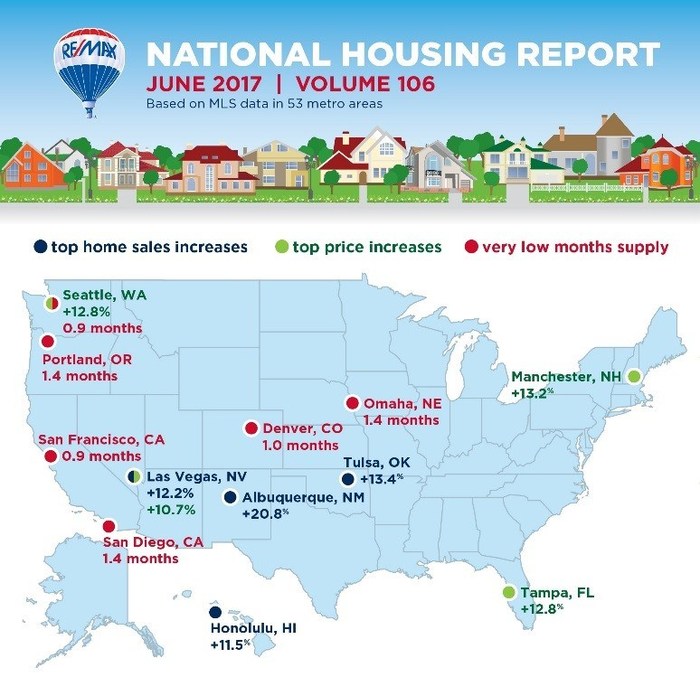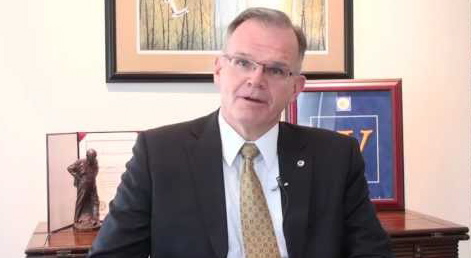Daily Business Report-June 19, 2017
The foam plastic known as polystyrene is associated with myriad ecological hazards. It doesn’t biodegrade. It easily becomes litter because it’s so light. It breaks down into small plastic bits that flow into waterways and harm wildlife.
Foam Fight: As California Balks at State Ban,
Activists Target Local Level
By Laurel Rosenhall | CALmatters
Foam burger boxes and ice cream cups could eventually go the way of the flimsy plastic shopping bag — banned throughout California.
It’s not likely to happen this year. Environmentalists who push for the bans lost a big fight last month when the Legislature voted down a bill that would have banned foam takeout containers statewide.
But growing pressure from communities that are passing the bans could be a game changer in the future, as environmentalists continue to make the case that the foam plastic known as polystyrene is associated with myriad ecological hazards. It doesn’t biodegrade. It easily becomes litter because it’s so light. It breaks down into small plastic bits that flow into waterways and harm wildlife.
With inaction in the state Capitol, the environmentalists’ war on plastic turns to cities and counties.
“That is going to be a continuing strategy for interests that don’t have the muscle to go to the Legislature or the money to go to the statewide ballot. They are increasingly going to go to local governments,” said Mike Madrid, a Republican political consultant who tracks ordinances common across California cities.
More than 100 cities and counties in California have already outlawed foam food packaging, a trend that is likely to grow. And as local governments make up their own rules, pressure will mount on the Legislature to create a uniform policy throughout the state.
It’s a playbook environmentalists used effectively when they lobbied for a ban on plastic bags. Year after year, the Legislature rejected a statewide ban on plastic shopping bags. So the green campaign went local, eventually persuading so many California cities to adopt some type of plastic bag ban that by 2014, the Legislature was compelled to act.
Suddenly grocery stores that previously opposed a statewide plastic bag ban made a deal to support it by collecting 10-cent fees for paper shopping bags, arguing that the hodgepodge of local rules made business difficult for store owners and confusing for shoppers.
“It was intentional to create a patchwork of local policies as a means of motivating opponents to come together and find a statewide solution,” said Mark Murray executive director of Californians Against Waste, an environmental advocacy group that backed the plastic bag ban.
The push to get local governments to ban polystyrene (apparently incorrectly called Styrofoam) is inspired by the success on the plastic bag ban, Murray said, but is not a centralized effort. “It’s no longer something we can completely control,” he said. “You start things going, but then local activists, community groups that become passionate, take it over and they make it their own.”
Most cities in the San Francisco Bay Area have banned foam food containers for several years. More recently, bans have taken effect in Southern California cities such as Encinitas and Solana Beach (in San Diego County) and Pasadena, Hermosa Beach and Manhattan Beach (in Los Angeles County).
But the polystyrene bans are not the same from city to city. Some ban the product only at government facilities. Some ban it only at restaurants. Some include retail products like foam coolers, packing material or pool toys.
It causes headaches for restaurant owners who have a few locations in different cities, said Matthew Sutton, a lobbyist for the California Restaurant Association. His group would like to see the rules streamlined across the state, but it opposed the bill to ban polystyrene. Restaurants like using the product, he said, because it’s good for food with heavy sauces.
“Let’s increase and expand the infrastructure for recycling—not pick and choose products to ban,” Sutton said.
Days after the Legislature voted down Senate Bill 705 to make a statewide policy on polystyrene takeout containers, the city of Los Angeles took the first step toward its own ban. Its City Council directed local officials to study the feasibility of banning foam food packaging.
“I remain committed to a statewide solution to this problem, but until that day comes, local communities like the city of Los Angeles can lead the way to a more sustainable future by ending the use of polystyrene takeout food containers,” said a statement from Sen. Ben Allen, the Santa Monica Democrat who carried the unsuccessful bill.
Though Democrats from coastal communities voted for his bill, it failed without sufficient support from Democrats from inland areas such as San Bernardino, Riverside, Sacramento and Stockton. Some represent communities where polystyrene food containers are manufactured. Dart Container Corp., a company that makes foam packaging, employs about 650 people at three factories in inland regions of the state. The company is a big campaign donor and lobbied against Allen’s bill.
“A ban of this kind of product will not result in any reduction in trash or landfill waste,” said Dart spokeswoman Becky Warren.
A report by the state’s Environmental Protection Agency draws a distinction between plastic bag bans and foam container bans. Bag bans result in less trash because people instead use reusable shopping bags, the report said, while foam container bans would just force businesses to switch to another kind of disposable carton.
And those other containers are more expensive. Hard plastic containers cost 84 percent more than foam, and compostable paper containers cost 145 percent more, according to research by the California Restaurant Association.
Bills to restrict the kinds of disposable food packaging used in California have failed a half-dozen times in the last decade. Marce Gutierrez-Graudins, an environmental advocate who supported Allen’s bill, said she doesn’t think the Legislature will approve a statewide ban on polystyrene until environmentalists engage more Latino communities in supporting the policy. Polling shows Latinos are concerned about plastic litter they see in urban parks and waterways, Gutierrez said. The bill’s proponents fell short, she thinks, by publicizing it in elite coastal cities rather than building support across a broader swath of the state.
“I don’t see any major environmental bill winning in California without the support of (Latino) communities and these environmental justice groups,” Gutierrez said. “It doesn’t work any more.”
Next up: will California consider a ban on plastic drinking straws? No bills have been introduced in the state Capitol, but Santa Cruz County has already banned them, and some of the cities that were first to ban polystyrene are now discussing their own restrictions on straws.
CALmatters is a nonpartisan media venture explaining California’s policies and politics
____________________
May Jobless Rate: 11-Year Low as Minimum
Wage Impacts Job and Labor Force Growth
The unemployment rate in San Diego County in May fell to 3.6 percent — the lowest in 11 years — but overall year-over-year job growth continued below the 2 percent mark for the second straight month at 1.4 percent.
According to CBRE, job growth has not been consistently below 2 percent since early 2012. This figure is largely being dragged down by declining retail/food service employment, which accounts for about one-fifth of all jobs in the region.
The recent minimum wage increase is likely to blame, as the rate increased to $11.50 per hour for companies within the city of San Diego starting at the beginning of 2017, a $1 increase. California companies outside of the city of San Diego were also subjected to a minimum wage increase, up $0.50 to $10.50 per hour, but the impact has been measurably more substantial in San Diego. It is likely too early to tell if the impacted sectors will adjust and rebound.

“In March I said, ‘keep an eye on the hospitality and tourism industries, where we will see job growth in coming months,” said Phil Blair, executive officer of Manpower Staffing/San Diego. “This has started with 2,400 jobs added in May and we are heading toward the seasonal peak in August. But, so far in the Great Recession recovery, the peak of Leisure and Hospitality jobs has been higher each year. This is the first year-over decrease since 2010. This is something we need to watch.”
____________________
San Diego Sport Innovators Opens
Applications for Accelerator Program
San Diego Sport Innovators (SDSI), the nonprofit business development organization for the Sports and Active Lifestyle industry, is now accepting applications to its business accelerator program, SDSI Springboard, sponsored by K2 Insurance Services.
SDSI Springboard is a 20-week intensive, mentor-led program that proves the power of collaboration, as successful executives and seasoned entrepreneurs — from companies like Callaway Golf, Road Runner Sports, Active.com, Competitor Group — give time and expertise to help growing companies reach success.
“We are most proud of our successes,” says Bill Walton, SDSI executive chairman. “Over the years, 87 percent of our Springboard graduates are still in business, we have helped to build 70 different companies, those companies have raised more than $50 million in business-building capital and have create nearly 450 real jobs — jobs that are the bedrock foundation of our community.”
SDSI Springboard is open to SAL companies of all sizes who are facing significant milestones like: launching a new product, starting a new business, shifting their business model, preparing to raise capital or working through a significant growth phase.
Those interested can apply for free at http://sdsportinnovators.org/springboard/ through July 31. SDSI Membership is required upon acceptance into the program. To learn more about becoming a mentor, industry executives can contact Renne Catalano Gussman at renne@sdsportinnovtors.com.
____________________
Lufthansa to Offer Direct Flights to Frankfurt
Lufthansa Group has announced plans to inaugurate direct service to Frankfurt, Germany from San Diego International Airport in summer 2018.
In May, Condor Airlines inaugurated new seasonal nonstop service between San Diego and Frankfurt. The new flight is the only nonstop connection between San Diego and Continental Europe.
____________________

U.S. Housing Market Sales Up
After a brief dip in April home sales, the U.S. housing market returned to seasonally high sales in May, increasing 20.6 percent from the previous month and 4.3 percent from May 2016, according to the RE/MAX National Housing Report. In fact, it was the strongest May in terms of home sales in the nine-year history of the report.
____________________
TuSimple is First San Diego
Company to Test Self-Driving Vehicles
TuSimple joins the ranks of GM, Google, Tesla, and Ford this week in acquiring a permit from the California Department of Motor Vehicles to test autonomous driving vehicles on the road.
TuSimple said its autonomous systems can now tackle real Southern California road conditions like potholes, traffic, and random human driving behaviors —though always with a human driver watching out behind the wheel.
Though this is an important step forward on the road to fully autonomous driving, there’s still a lot of work to be done, says co-founder Xiaodi Hou.
“This permit doesn’t represent a technological innovation or milestone,” says Hou. “If we think about applying for the permit as if it were a kind of test, its requirements are relatively easy to fulfill. But real ability in autonomous driving is a different thing altogether.”
Now that they have an autonomous driving permit, the company plans to hit the ground running. They’ve scheduled a 420-mile test run from San Diego to Tucson, Ariz. at the end of June, in which they plan to test out a fully autonomous L4 system.



